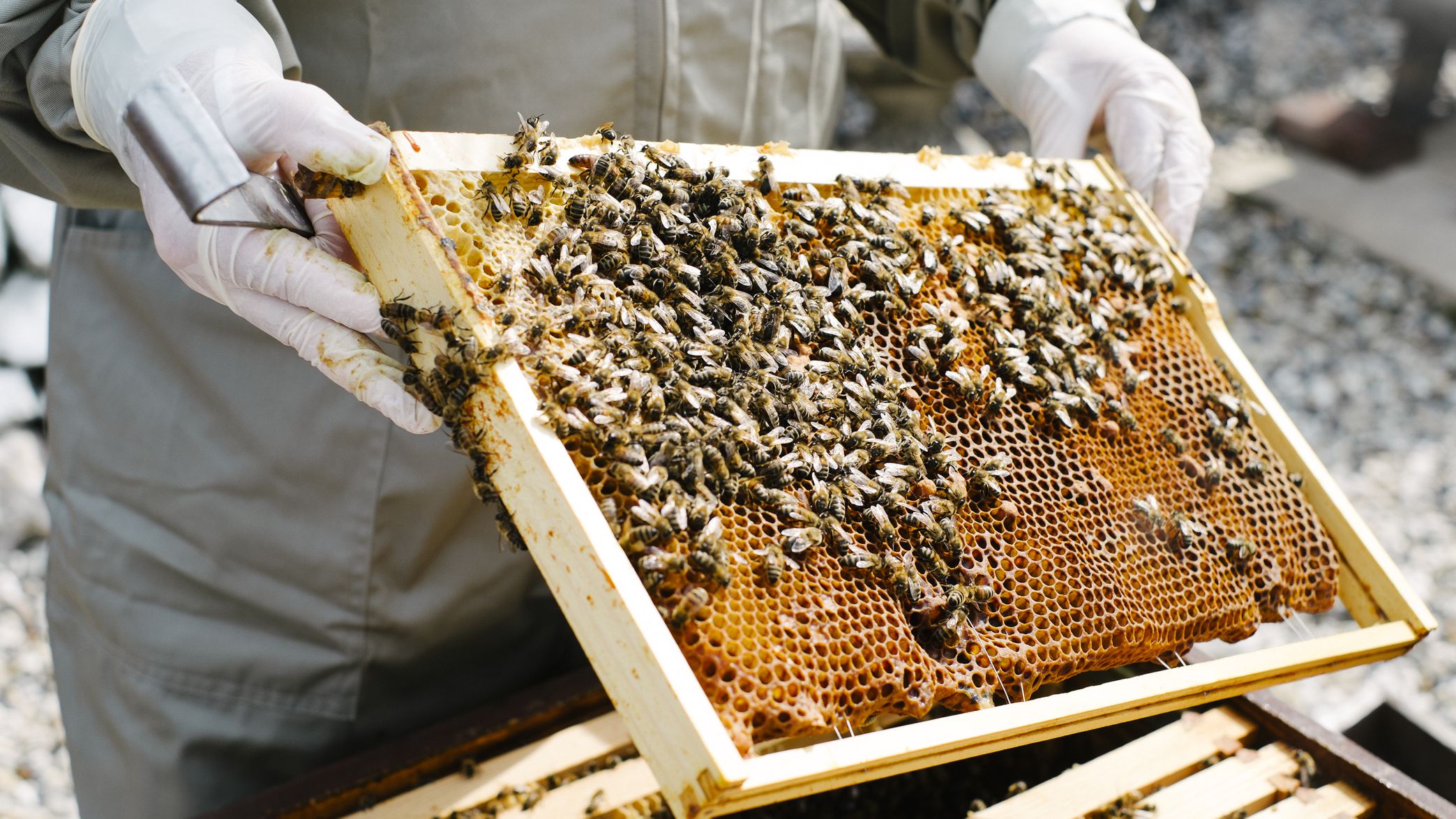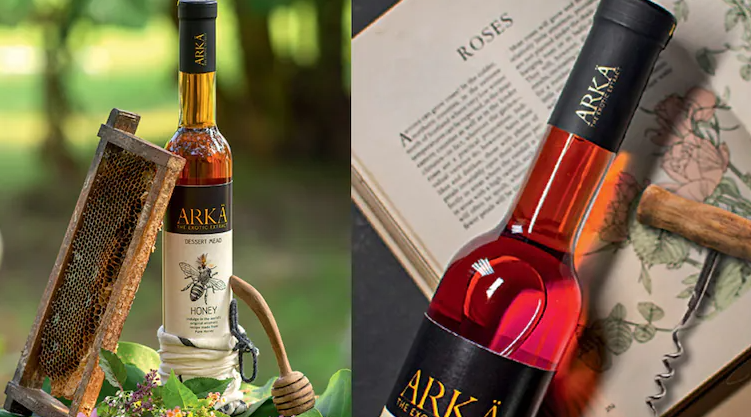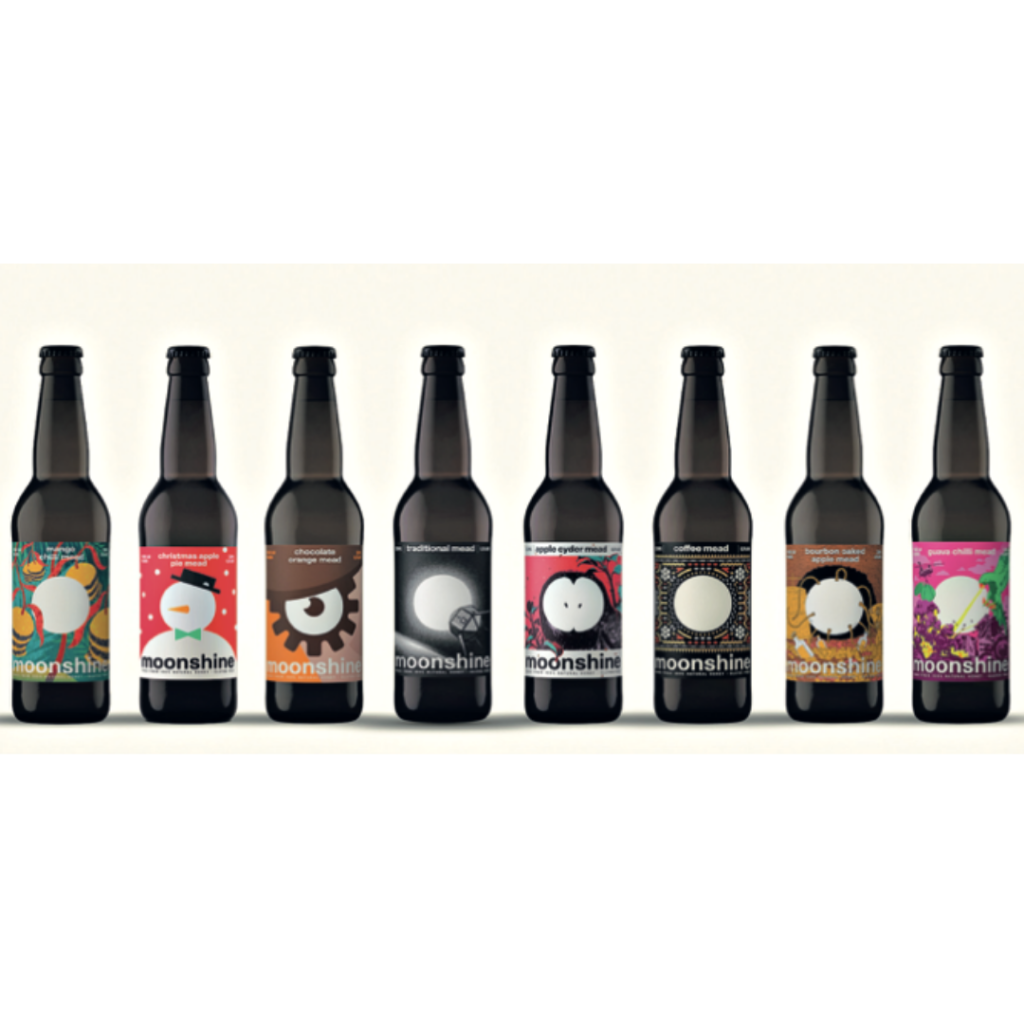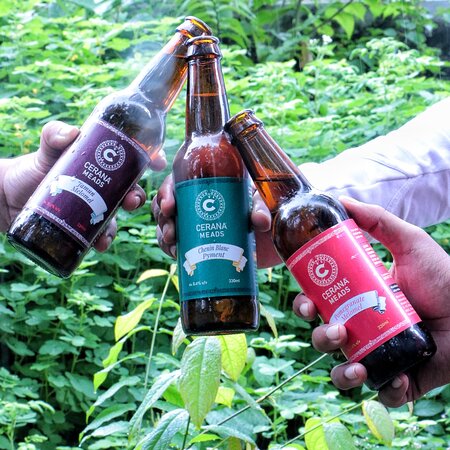Mead is reclaiming its hallowed roots, promising not just a flavourful, spirited alternative, but it weighs in on the sustainability narrative too.
If Adam and Eve were to put down the apple and pick up a drink instead, it could only be mead. The teetotaller Einstein once prophesised that the day bees die, humans will have only four years to live. Then, could he have possibly been drinking something else? And it was only mead that ensured Pandavas survived their exile in the pitiless rugged wilderness. The oldest beverage known to mankind is now making waves in India too; its birthplace, where it all began. Yet, it’s still under covers, waiting to be unveiled and deciphered.
Mead is nature taking the bees’ work and turning it into another discerning gem. Honey is fermented producing 4-16 per cent abv with varied sweetness and fizziness, to which further flavours can be added. Traditionally, these were either fruits or spices, adding to the medicinal, antibacterial, antioxidant values of alcohol in the first place, hence the expression ‘davaa daaru’! Honey in itself is a soother and the loosely grouped term ‘madhu’ has represented alcoholic beverages in India since the Vedas, thus bars were christened ‘madhushala’, inspiring poets likes Ghalib and Harivansh Rai Bacchhan. Our alco-bevs have revolved around honey, so has our civilisation, toting honey as the only antidote to all deadly pandemics, apparently. And as with all things old; traditions revisit as a second coming. So also with meads which is being resurrected with glory and passion.
Old Wine in a new Bottle?
Moonshine Meadery’s recent quirky stint at Shark Tank India kindled countless conversations. The Indian gin craze and meads approximately began at the same time, circa early 2018. While gins have created a revolution, half a decade on meads are yet to be completely decoded. Something as rudimentary as setting it as a category in itself has been a task. Though it comes in a pint bottle and our excise lists it as wine, you’ll see #MeadIsNotBeer trending on Instagram, which, let’s agree, is the ultimate socially-befitting court of decision!
Mead to Order
Many urban warriors are reviving the art of beekeeping now. Rohan Rehani, Moonshine Meadery’s co-founder, quit engineering, and mastered the art through a professional qualitification. And in the hunt for the most sustainable, purest, and varietal honeys they’ve setup their own namesake honey brand. Is it really the purest though? Well, here’s a true story. I was born allergic to honey, a reaction so strong that a teaspoon would land me in an ICU. Until I visited Moonshine and dared tasting their varietal honeys, and buying 8 kg over the following weeks. Turns out, I was allergic to fake honey (or foney as we call it now), and had never experienced the real stuff!
Why the move to meads?
Unlike beers, (most) wines, and spirits, meads are gluten free, and low on calories too, taking away the guilt of nursing a beer-belly or chubby cheeks. Unlike the stubbornness of the universally written rules around Witbiers, Hefeweizens and wines, meads have no limitations of style, sweetness, and what goes in it, minus water and honey of course. “There’s a dearth of flavourful beverages in the country. We bring in a cultural nostalgia too working with flavours like Bhoot Jholakia chillies, coffee and jasmine that’s very southern, mangoes and pineapples that we’ve grown-up with, Kokum that every Maharashtraian-Goan house has, etc”, says Nitin Vishwas, Moonshine’s co-founder. Priyanka Save, co-founder of Arka Honey Dessert too has brought rose petals, jamun, orange, and cocoa to the spectrum.
What sets mead apart
Apart from the playfulness, no-expiry tag,
and versatility, it’s their ability to make Earth a better place. Bees add
immense value to the environment, making it more sustainable, productive, and
supportive. Dr. Yoginee Budhkar of Cerana Meads shares “if it wasn’t for bees,
humans can’t use pollen anyway. Bees do the work for us. Not just segregating
wet and dry garbage, and avoiding plastic straws, drinking mead is a delicious
way of supporting the environment and making better choices.”
As I write this just after Women’s Day, Save makes a powerful statement with “the queen bee is rising”. The recent release of Jack Daniels Honey and Patrons’s Honey Tequila is a global statement that it most definitely is. “Meads and honey-accented drinks are a cool bridge between the childhood favourite cola and sharbet and the bitter-toned wines and beers. And in the Indian weather, a light, flavoursome, guilt-free drink makes the perfect fit”, adds Vishwas. Options vary from the dry and fruity meads from Moonshine to the Spiced Yule from Cerana and the ‘pressed and blessed’ dessert nectars from Arka. We hear more are on their way.
What’ll make 2022 the golden year for meads?
Unlike in beers, honey is in limited supply and can’t be over produced. In the last decade and a half, producers have refined their offerings from their liquids, to labels, storytelling, and styles, gathering evidence from market demand and aspirations. Finally, they seem to have garnered enough confidence to toy and flirt with hues and flavor profiles with unabashed gallantry and flair. What Bira did for beers in India—providing an alternative to mass-produced chemical-induced lagers—meads will do for a bigger spectrum of the menu. And let’s be honest, we’ve also been spoilt for choice; it’s rare to go to the liquor store and return without picking a few new labels. FOMO is for real.
No matter what your motivation or inspiration that drives you to mead—a new drink, flavourful offering, sustainability, environmentalism, or guilt-free drinking—it’s here to stay. And as Einstein urged: Keep the bees alive if you want to indulge in good choices. Translation? Drink meads and make earth great again.
First published in India Today Spice March,2022




